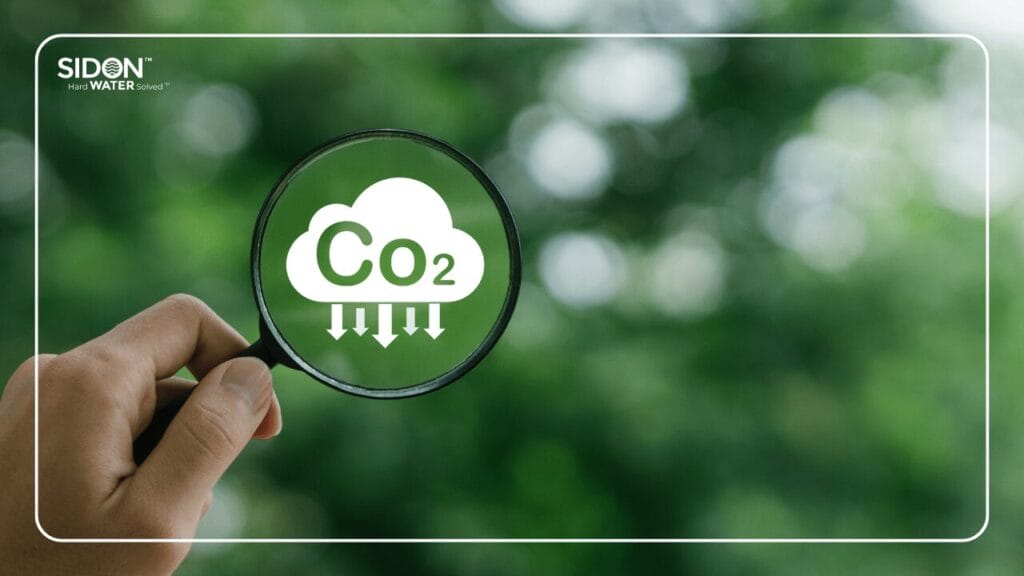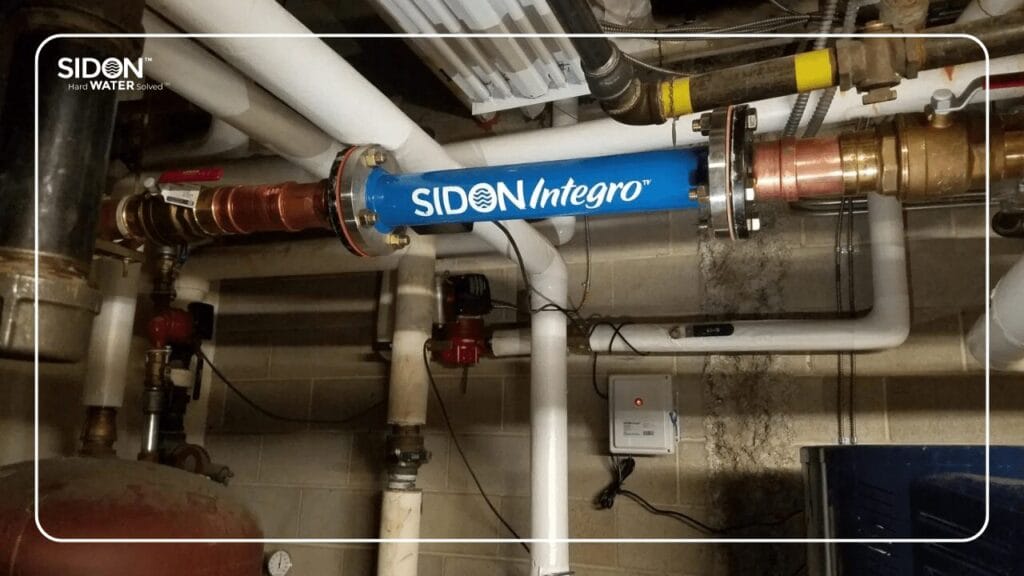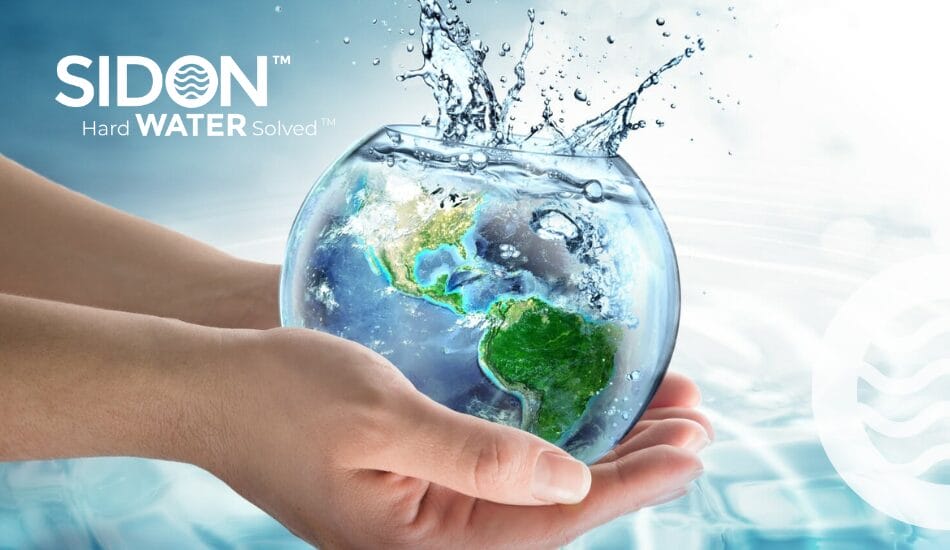Eco-friendly practices in water treatment are becoming more important as we strive to protect our environment. Traditional methods often rely on chemicals and high energy consumption, which can harm ecosystems and contribute to climate change.
In this blog post, we’ll explore some eco-friendly practices in water treatment for both domestic and industrial use. We’ll also introduce the Integro™ system by Sidon Water, a cutting-edge solution that offers significant advantages in maintaining water quality while being environmentally responsible.
What Do We Mean by Eco-Friendly Practices in Water Treatment?
Eco-friendly practices in water treatment are methods that help keep the environment safe and healthy. These methods aim to treat water in a way that reduces harm to our planet.
By adopting eco-friendly practices in water treatment, we can ensure sustainable water management that protects natural resources and reduces our carbon footprint.

In general, eco-friendly practices aim to do three main things:
- Conserve energy: Use less electricity or fuel. For example, using solar power to treat water instead of using machines that need a lot of electricity.
- Reduce chemical use: Use fewer harmful chemicals. This means finding ways to clean water without adding chemicals that can hurt the environment.
- Prevent pollution: Stop dirty water from getting into rivers, lakes, and oceans. This includes treating wastewater properly so that harmful substances are removed before the water is released back into nature. By cleaning wastewater thoroughly, we prevent pollutants from harming aquatic life and keep our water sources clean.
Why is it Important to Choose Eco-Friendly Practices in Water Treatment?
Choosing eco-friendly practices in water treatment is essential for preserving our environment and ensuring the sustainability of our water resources.
Most of the traditional water treatment methods rely on extensive chemical use and high energy consumption, which can lead to significant environmental damage. Chemicals used in water treatment can contaminate natural water bodies, harming aquatic ecosystems and the organisms that inhabit them.
Additionally, the high energy demand of many outdated water treatment systems contributes to greenhouse gas emissions, exacerbating climate change. By adopting eco-friendly practices, we can minimize these adverse effects, reduce our carbon footprint and protect biodiversity.
Moreover, eco-friendly water treatment practices contribute to human health and economic stability. Clean, safe water is fundamental for public health, preventing waterborne diseases and ensuring that communities have access to healthy drinking water.
Sustainable water treatment methods also enhance the efficiency and longevity of water systems, reducing maintenance costs and the need for expensive chemical additives. Last but not least, for industries, eco-friendly practices ensure compliance with environmental regulations, avoid costly penalties and enhance corporate responsibility and reputation. Ultimately, choosing eco-friendly practices in water treatment supports a balanced ecosystem, fosters healthier communities and promotes economic resilience.
Eco-Friendly Water Treatment Practices
Here are some eco-friendly technologies used for water treatment that are both effective and environmentally responsible:
Ultrafiltration
Ultrafiltration is an eco-friendly technology for water treatment that uses a membrane to filter out very small particles from water. This membrane has tiny pores that allow water to pass through while blocking particles of high molecular weight, like sediments and suspended solids. The result is cleaner water free from many contaminants. One of the great benefits of ultrafiltration is that it does not require chemicals to treat the water, making it an environmentally friendly option.
While ultrafiltration is effective, it may not remove all types of contaminants, such as dissolved salts and some chemicals. The membranes can also become clogged and require regular maintenance and replacement, which can be costly over time.
Ceramic Water Filtration
Ceramic water filtration involves using porous ceramic materials to filter water. The tiny pores in the ceramic filter trap bacteria, protozoa, and sediment, allowing clean water to pass through. This method has been used for centuries and is known for its simplicity and eco-friendliness.

The main risks to ceramic filtration are hairline cracks and cross-contamination. If the filter is dropped or mishandled, it can develop fine cracks that are hard to see, allowing larger contaminants to pass through. This means the filter needs to be handled with care and inspected regularly to ensure it remains effective.
Ultraviolet (UV) Water Purification
Ultraviolet water purification uses UV light to inactivate harmful microorganisms in water. When water passes through a UV light chamber, the light damages the DNA of bacteria, viruses, and other pathogens, rendering them harmless.
However, UV light can only kill the microorganisms in water, such as bacteria and viruses. UV technology doesn’t remove other contaminants like heavy metals, salts and chlorine.
Activated Carbon Filtration
Activated carbon filtration is an eco-friendly technology used for water treatment where water is passed through a filter containing activated carbon. The carbon has a large surface area and is highly porous, which allows it to absorb a wide range of contaminants, including chlorine, pesticides, and organic compounds. This improves the taste and odor of the water, so it makes it more pleasant to drink.
Activated carbon is great at removing certain contaminants from water, but it can’t get rid of everything. Some chemicals and pollutants aren’t attracted to carbon, so other filtration methods might be needed to completely purify the water.
Eco-Friendly Water Treatment for Industrial Use
Most of the eco-friendly practices mentioned above are suited for domestic use, as they cannot treat large volume of water. But water treatment is also crucial for industrial applications. Effective water treatment ensures safe, efficient operations and compliance with environmental regulations. Industries like healthcare, hospitality, and food processing need high-quality water for safety and operational efficiency. Hard water, which contains high levels of minerals, can cause limescale build-up, damaging equipment and increasing maintenance costs.
The Integro™ System
One advanced and eco-friendly solution is the Integro™ system by Sidon Water. This system uses cutting-edge technology to prevent and remove persistent limescale by injecting electrons into the water. The electrons disrupt the bonding between different minerals, ensuring they stay in solution and do not form limescale, regardless of temperature or pressure.
It sustainably restructures water without using any chemicals, thereby preventing and removing limescale throughout your hot and cold water systems, as well as equipment. Once installed, the Integro™ will help you make a positive impact on the environment, as well as your finances.

By integrating the Integro™ system, businesses can ensure cleaner, safer, and more efficient water systems, all while being environmentally responsible.
Benefits of the Integro™ System:
It prevents and removes limescale: The Integro™ uses advanced technology to stop limescale by injecting electrons into the water. This energy disrupts mineral bonds, keeping them neutral and in solution. As a result, minerals like calcium and magnesium don’t form limescale, regardless of temperature or pressure.
Significant reduction in rust and corrosion: With the Integro™, there’s no need to worry about corrosion caused by ions in your water system. The injected electrons displace some ions, creating “free electrons” in the solution. This causes particles like silica and rust to stay suspended and not bind with other ions, thus reducing corrosion.
Improved bacteriological control: Say goodbye to bacterial breeding grounds in your water system. Limescale, rust and biofilm are prime areas for bacteria like Legionella to thrive. The Integro™ eliminates limescale, which helps reduce these bacteria-friendly environments.
Reduced energy consumption: Limescale build-up leads to increased energy consumption. The Integro™ not only prevents future scale but also removes existing build-up within 1-3 months. This can reduce energy usage by up to 40%, whether used alone or alongside traditional softeners.
To discover how the Integro™ system can benefit your business and lower your carbon footprint, book a call with our team today. Our experts are ready to help you improve your water quality and operational efficiency. Click here to schedule your consultation now.
